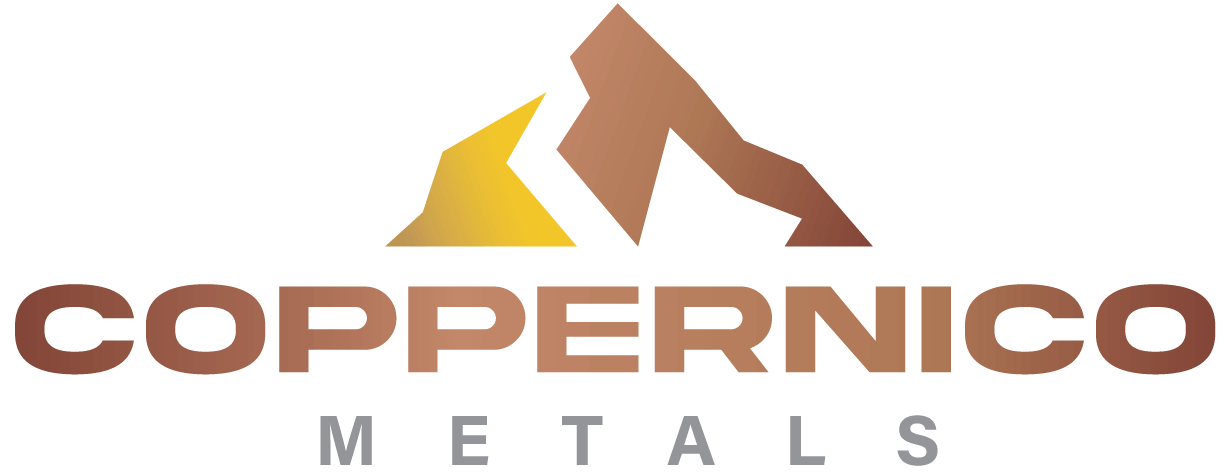Critical Elements Successfully Produces Battery Grade Lithium Hydroxide in Pilot Plant Testing
NOT FOR DISTRIBUTION TO UNITED STATES NEWS WIRE SERVICES OR FOR DISSEMINATION IN THE UNITED STATES
MONTRÉAL, QC / ACCESSWIRE / May 17, 2022 / Critical Elements Lithium Corporation (TSX-V:CRE) (OTCQX:CRECF) (FSE:F12) (“Critical Elements” or the “Corporation“) is pleased to announce the results from the Corporation’s pilot plant program recently completed at the Metso Outotec Research Center, successfully converting spodumene concentrate from the Rose Project (“Rose“) into battery grade lithium hydroxide using a thermal leaching process.
The pilot plant conversion process from spodumene concentrate to lithium hydroxide was further optimized and confirmed the previous strong results with extraction and conversion rates of 92 %. In addition, the pilot plant produced battery grade lithium hydroxide. A summary of impurity levels is provided below:
The two critical steps of the process to recover the lithium from spodumene are the conversion from alpha spodumene to beta spodumene where the piloting work achieved 98% conversion rate and the separation of the lithium hydroxide from the calcined spodumene by soda-leaching (98% efficiency) and conversion to lithium hydroxide (96% efficiency).
- Battery grade lithium hydroxide with a further improved quality profile
- High spodumene alpha/beta conversion / leaching / conversion rates of combined 92%
- Efficiency for the calcination 98%
- Efficiency for the soda-leaching 98%
- Efficiency for the lithium hydroxide conversion 96%
PILOT PLANT WORK DETAILS
The pilot plant work program was conducted at Metso Outotec’s Research Center in Finland:
- Test work campaign, related to Metso Outotec’s lithium hydroxide production process, was carried out for Critical Elements Lithium Corporation at the Metso Outotec Research Center in Finland and Germany.
- Varying concentrate grades were tested during the test work campaign.
- Two different North American lime sources have been qualified and approved.
- Process parameters have been modified and adapted.
- Concentrate used for pilot plant testing was provided from sample taken from Critical Elements Rose and Rose South zones.
- During the test campaign, the process flowsheet was optimized.
-
The main unit operations in the pilot process were:
- Calcination of alpha spodumene
- Slurry preparation for soda leach
- Soda leach of calcined spodumene
- Soda leach residue filtration and washing
- Lithium hydroxide conversion by lime
- Conversion residue filtration and washing
- Solution purification by ion exchange
- Lithium hydroxide crystallisation
- Crystallization mother liquor recycling
- High, 92% Li extraction from alpha spodumene and after calcination/soda leach and lithium hydroxide conversion.
- Test work results produced lithium hydroxide with the following impurity profile:
LiOH analyses – impurity levels in LiOH
|
CO2 |
Cl |
SO4 |
Mg |
Al |
Cr |
Mn |
Fe |
Ni |
Cu |
Pb |
Na |
Si |
K |
Ca |
Zn |
|
% |
ppm |
ppm |
ppm |
ppm |
ppm |
ppm |
ppm |
ppm |
ppm |
ppm |
ppm |
Ppm |
ppm |
ppm |
ppm |
|
<0.2 |
<20 |
<150 |
<2 |
<3 |
<1 |
<1 |
<3 |
<1 |
<1 |
<1 |
<20 |
<20 |
<10 |
<10 |
<5 |
Successful results using a thermal leaching process demonstrate that Critical Elements can deliver a battery grade lithium hydroxide to the electric vehicle market. Additional tests may need to be conducted by the Corporation in order to meet customer specific requirements.
To date Critical Elements has completed the following testing and piloting work:
- Piloting of the chosen concentrator plant design (see Critical Elements press release dated April 5, 2017).
- Piloting of the thermal conversion of the ore from α-spodumene to β-spodumene (See Critical Elements press release dated April 13, 2017).
- Piloting of the Thermal Leaching Process + bicarbonizationfor lithium carbonate (See Critical Elements press release dated May 29, 2017).
- Piloting of the Thermal Leaching + Lime Process to produce lithium hydroxide (See Critical Elements press release dated October 29, 2018).
Metso Outotec is a leading technology company in multiple mining and extraction industries, including the lithium industry, with a global presence and owned R&D facilities in in Frankfurt, Germany and Pori, Finland, as well as other locations.
They offer competent knowledge of the various processing options for both beneficiating spodumene, as well as converting spodumene into saleable lithium salts. Their lithium expertise includes multiple years of research into various lithium processing options, including the understanding and optimizing of the process Critical Elements has chosen for lithium extraction.
Next Steps
Following this successful lithium hydroxide process optimization campaign, Critical Elements will finalize its feasibility study for a lithium hydroxide conversion facility.
As the study is still underway, it is important to note that the Corporation is not in a position to confirm as of the date hereof if the hydroxide chemical plant to produce high quality lithium hydroxide monohydrate will ever be implemented or that it will form part of the Rose project.
Qualified persons
Paul Bonneville, Eng., is the qualified person that has reviewed and approved the technical contents of this news release on behalf of the Corporation.
About Critical Elements Lithium Corporation
Critical Elements aspires to become a large, responsible supplier of lithium to the flourishing electric vehicle and energy storage system industries. To this end, Critical Elements is advancing the wholly owned, high purity Rose lithium project in Québec. Rose is the Corporation’s first lithium project to be advanced within a land portfolio of over 700 square kilometers. In 2017, the Corporation completed a feasibility study on Rose for the production of spodumene concentrate. The internal rate of return for the Project is estimated at 34.9% after tax, with a net present value estimated at C$726 million at an 8% discount rate. In the Corporation’s view, Québec is strategically well-positioned for US and EU markets and boasts good infrastructure including a low-cost, low-carbon power grid featuring 93% hydroelectricity. The project has received approval from the Federal Minister of Environment and Climate Change on the recommendation of the Joint Assessment Committee, comprised of representatives from the Impact Assessment Agency of Canada and the Cree Nation Government; The Corporation is working to obtain similar approval under the Québec environmental assessment process. The Corporation also has a good, formalized relationship with the Cree Nation.
For further information, please contact:
Patrick Laperrière
Director of Investor Relations and Corporate Development
514-817-1119
[email protected]
www.cecorp.ca
Jean-Sébastien Lavallée, P. Géo.
Chief Executive Officer
819-354-5146
[email protected]
www.cecorp.ca
Neither the TSX Venture Exchange nor its Regulation Services Provider (as that term is described in the policies of the TSX Venture Exchange) accepts responsibility for the adequacy or accuracy of this release.
Cautionary statement concerning forward-looking statements
This news release contains “forward-looking information” within the meaning of Canadian Securities legislation. Generally, forward-looking information can be identified by the use of forward-looking terminology such as “scheduled”, “anticipates”, “expects” or “does not expect”, “is expected”, “scheduled”, “targeted”, or “believes”, or variations of such words and phrases or statements that certain actions, events or results “may”, “could”, “would”, “might” or “will be taken”, “occur” or “be achieved”. Forward-looking information contained herein include, without limitation, statements relating to the completion of the provincial permitting process and its potential positive effects on the Corporation and the Project, the completion of engineering study for a chemical plant to produce high quality lithium hydroxide monohydrate, and continued positive discussions and relationships with local communities and stakeholders. Forward-looking information is based on assumptions management believes to be reasonable at the time such statements are made. There can be no assurance that such statements will prove to be accurate, as actual results and future events could differ materially from those anticipated in such statements. Accordingly, readers should not place undue reliance on forward-looking information.
Although Critical Elements has attempted to identify important factors that could cause actual results to differ materially from those contained in forward-looking information, there may be other factors that cause results not to be as anticipated, estimated or intended. Factors that may cause actual results to differ materially from expected results described in forward-looking information include, but are not limited to: results of the engineering study for a chemical plant to produce high quality lithium hydroxide monohydrate, Critical Elements’ ability to secure sufficient financing to advance and complete the Project, uncertainties regarding global supply and demand for lithium and tantalum and market and sales prices, uncertainties with respect to social, community and environmental impacts, uncertainties with respect to optimization opportunities for the Project, as well as those risk factors set out in the Corporation’s year-end Management Discussion and Analysis dated August 31, 2021 and other disclosure documents available under the Corporation’s SEDAR profile. Forward-looking information contained herein is made as of the date of this news release and Critical Elements disclaims any obligation to update any forward-looking information, whether as a result of new information, future events or results or otherwise, except as required by applicable securities laws.
SOURCE: Critical Elements Lithium Corporation
View source version on accesswire.com:
https://www.accesswire.com/701704/Critical-Elements-Successfully-Produces-Battery-Grade-Lithium-Hydroxide-in-Pilot-Plant-Testing





